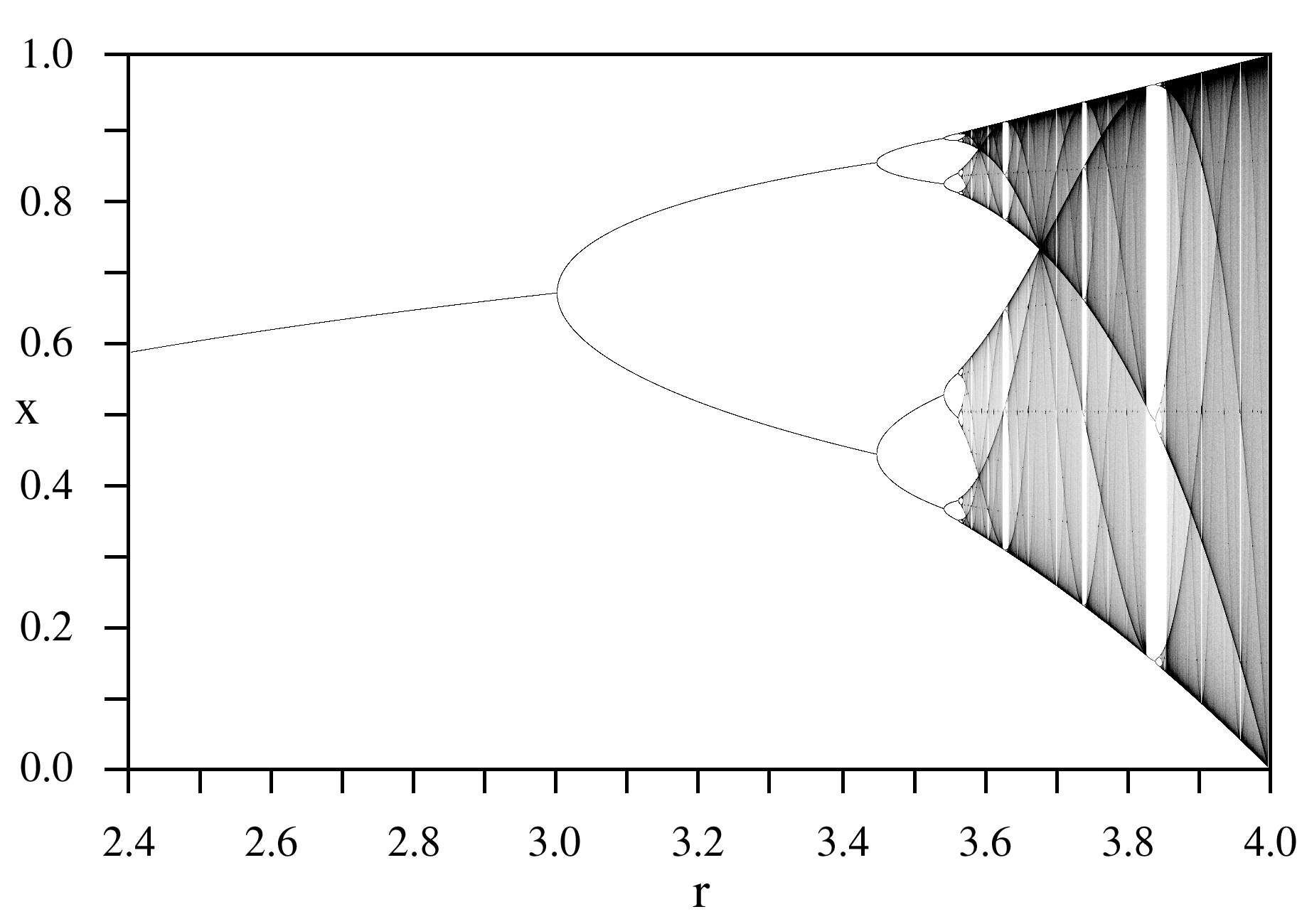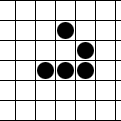Long time ago, when first meeting Chaos, I have had a great impression on the "Fishes in pond" problem; Now, more admiration has been rised in me when I met the Conway's Game of Life and the Go game!
- Simple forumlae Vs Chaotic results:
 Logistic map is a very simple model of "Population of fishes in a pond" which is based on only 2 factors
Logistic map is a very simple model of "Population of fishes in a pond" which is based on only 2 factors
(1) Reproduction:next year's population ~ this year's population, and
(2) Starvation:next year's population ~ (pond's limit - this year's population)
but results in a fantastic chaos! - Simple rule set Vs Universal behavior: Conway's Game of Life is a very simple model of "Living population" which is defined by only 4 trivial rules
(1) Survival:One cell will continue to live if there are 2 or 3 living neighbour cells,
(2,3) Death:One cell will die if there is less than 2 or more than 3 living neighbour cells (because of isolation/overpopulation), and
(4) Birth:One cell will be born in an empty square if that square is surrounded by exactly 3 living cells.
However, with appropriate initial seeds, this population can grow and form various types of "living body". Moreover, this "cellular automaton" is equally powerful as a (2D-tape) Turing machine, thus universal! - Simple games Vs Intractable solutions: Go, 圍棋/囲碁, literally "encirclement chess", is one of the oldest board game on earth which is equipped with only a board with many stones of black and white. The play rules are simply about how to "
surround the opponent's stones to capture them", which you can learn in minutes, but knowing the rules is nothing about knowing how to play! After a few trials, you will soon discover that there are countless patterns and strategies for players to learn, that the shape of stones on the board is so chaotic and ever-changing, 千変万化, "thiên biến vạn hoá"!!! Moreover, the philosophy of Go is about the whole universe, about the life and death, is about the endless force of the empty, is that "everything is generated from the nothing!" This game, Go, is far more difficult than the common Chess as well as other similar chesses(Xiangqi/象棋, Shogi/将棋):
- "While the strongest computer chess software has defeated top players (Deep Blue beat the world champion in 1997), the best Go programs routinely lose to talented children." - Wikipedia
- "While the Baroque rules of Chess could only have been created by humans, the rules of Go are so elegant, organic, and rigorously logical that if intelligent life forms exist elsewhere in the universe, they almost certainly play Go." - Edward Lasker
This game is actually "A few moments to learn, a lifetime to master!" (Chinese proverb)
No comments:
Post a Comment